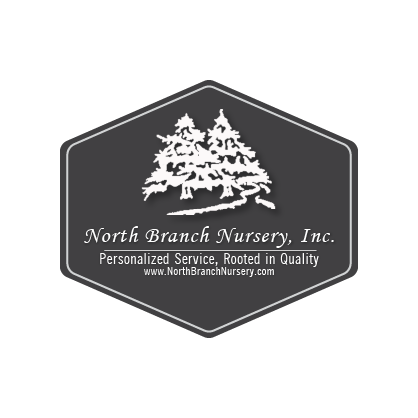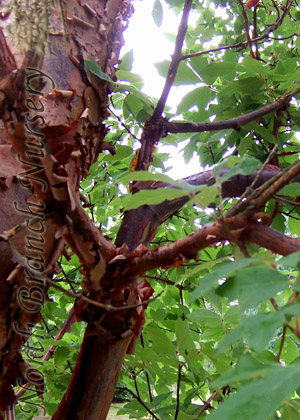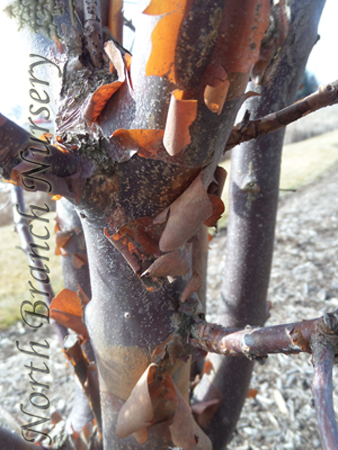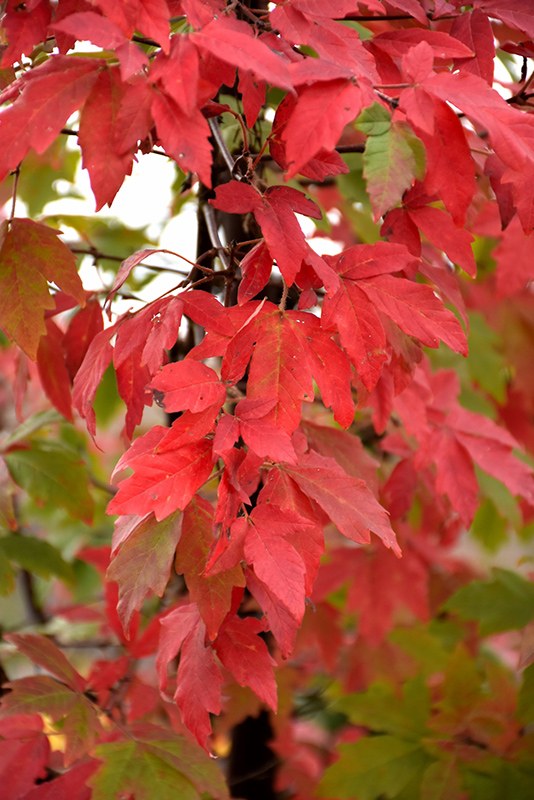Looking for a particular Plant? Try our Plant Finder Tool.
Height: 35 feet
Spread: 20 feet
Sunlight:
![]()
![]()
Hardiness Zone: 4b
Description:
This small ornamental tree is renowned for its exfoliating (peeling) bark in cinnamon red, pink and tan, along wth good fall color; an extremely high value accent tree for the winter landscape
Ornamental Features
Paperbark Maple has dark green deciduous foliage on a tree with an oval habit of growth. The compound leaves turn outstanding shades of orange and antique red in the fall. The peeling antique red bark is extremely showy and adds significant winter interest.
Landscape Attributes
Paperbark Maple is a multi-stemmed deciduous tree with a shapely oval form. Its relatively fine texture sets it apart from other landscape plants with less refined foliage.
This is a relatively low maintenance tree, and can be pruned at anytime. It has no significant negative characteristics.
Paperbark Maple is recommended for the following landscape applications;
- Accent
- Shade
Planting & Growing
Paperbark Maple will grow to be about 35 feet tall at maturity, with a spread of 20 feet. It has a high canopy with a typical clearance of 6 feet from the ground, and should not be planted underneath power lines. As it matures, the lower branches of this tree can be strategically removed to create a high enough canopy to support unobstructed human traffic underneath. It grows at a slow rate, and under ideal conditions can be expected to live for 80 years or more.
This tree does best in full sun to partial shade. It prefers to grow in average to moist conditions, and shouldn't be allowed to dry out. It is not particular as to soil type or pH. It is somewhat tolerant of urban pollution. This species is not originally from North America.
Special Notes
Available in multi-stem (clump form, several trunks) or with a single trunk





